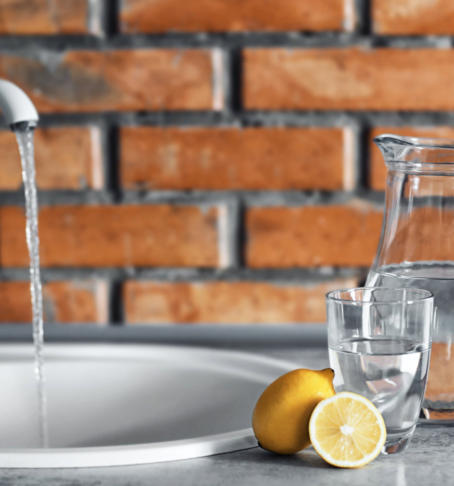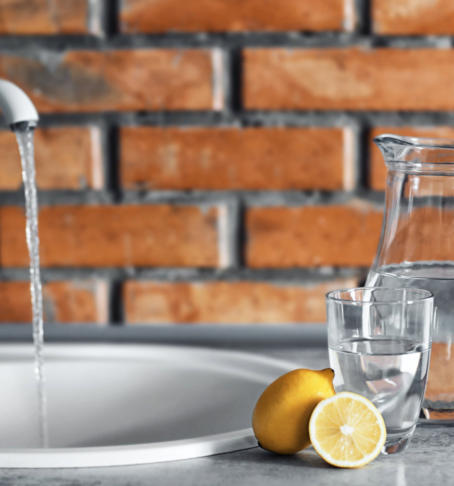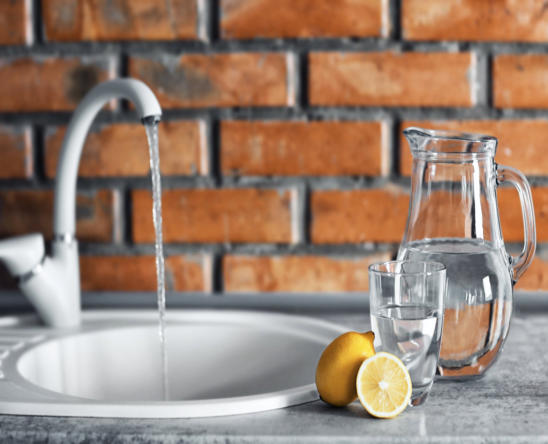
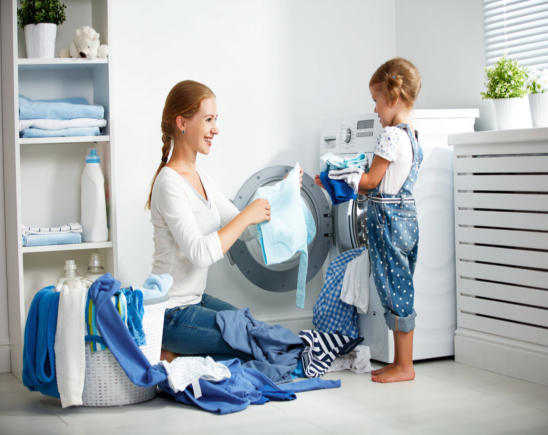

Quality Water Specialists, Inc.
1-800-331-4H2O or 1-906-497-5764


2024 Quality Water Specialists Inc.
Website by North Country Website Design.
How to Find Us &
Contact Us
Hours:
Monday - Friday 7:30 AM-4:30 PM CST
Saturday - Sunday Closed
Address:
W3488 US 2-41
Powers, MI 49807
Phone:
906-497-5764 or 800-331-4H2O (4426)
Email: info@qualitywaterspecialists.com
Frequently Asked Questions
Air Purification Questions
Water Treatment Questions
Air Purification Questions
How do I know if I have an indoor air quality problem? We can test the air quality in your home using a laser particle counter. We will be able to determine if you will benefit from a Hellenbrand Air Purifier based upon those results. Below is a scale that explains different levels of air quality we may find: Air Quality Chart .5 um- Small Count Reading (Dependent on type of meter used) We use Airy Model P311 Excellent 0-7500 Very Good 7,500-15,000 Good 15,000-30,000 Fair 30,000-105,000 Poor 105,000-300,000 Very Poor >300,000 RESIDENTIAL AIR CLEANERS A Technical Summary What are the best air purifiers for allergy and asthma sufferers? HEPA (High-Efficiency Particulate Air) is a standard for air filtration set by the U.S. Government. While this is generally seen as an acceptable measurement for whether indoor air is good or bad, at Hellenbrand, we only saw it as a starting point. After all, HEPA filters are not 100% effective for capturing particles up to 0.3 microns – which the American Lung Association qualities as “ultra fine particles.” Our DFS (Disinfecting Filtration System) technology has four times the filter loading capacity than a typical HEPA rated filter, with an efficiency of capturing 99.99% of pollutants at 0.007 microns (40x smaller than a typical HEPA efficiency at 0.3 micron). The system is FDA listed as a Class II medical device. How much maintenance is required for the air filters? Periodic filter changes will be required, but far less often than a HEPA filter as Hellenbrand filters hold 4x the amount similarly sized HEPA. Quality Water Specialists will bring the filters to you and change the main DFS filter every 16-24 mos., carbon filter every 6-12 mos. What happens if the air filters are not changed? The machine will no longer be effectively treating the environment. What is a micron? Short for micrometer, a micron is one millionth of a meter and approximately 1/25,000th of an inch. Microns are used to measure airborne particle sizes. This is important because many harmful airborne particles are invisible to the naked eye, making them easily inhaled or distributed throughout your indoor environment. For example, dust mite allergens can be as small as 0.1 to 0.3 microns, which is considerably smaller than a single strand of human hair that typically measures 30 to 120 microns. How long should I run my air purifier? For best results, it is recommended to run your air purifier continuously. What are the different types of Air Purifiers? • HEPA - High Efficiency Particulate Air o 99.97% efficient at 0.3 microns o Low air flow restriction o Noisy o No microorganism destruction o Breeding ground for bacteria • UV - Ultraviolet Light o Commonly used in commercial applications with various monitors to ensure proper dosage outputs are being met o Not recommended for residential applications due to lack of monitoring capabilities o Insufficient air flow • Ozone - Disinfectant gas o Ozone gas is dispersed into the air o Very harmful in high concentrations o Is only a disinfectant • Ionizers - Electronic Charge o No air flow o Utilizes metal plates for electrostatic charge that require frequent cleaning o Only about 30-45% efficient o No filters • Hellenbrand System o DFS Germicidal Technology- Captures dust, mold, pollen, dust mite, dander and removes up to 100% of these captured contaminants o 360 degree air intake- patented o Six air change outs per hour o Better than 99.97% particle capture at 0.3 microns o Four times the particle reduction as a similar sized HEPA filter o FDA Certified and listed Class II medical device ▪ 98-100% of viruses ▪ 98-100% of bacteria ▪ 94-100% of mold and fungi o 100% of incoming air is treated in sealed filter chamber o Electronic control panel o Replace main DFS filter every 16-24 mos., carbon filter every 6-12 mos. o Model 20600-03 High chemical gas absorption Have more Questions?Water Treatment Questions
What is hard water? Hard water is water that is high in minerals like calcium, magnesium and carbonate. It can happen with both city and well water, and takes a huge toll on your home, clogging up your appliances, creating spotty dishes, leaving your skin dry and your clothes dull and scratchy. How does a softener work? A water softener consists of two tanks; the first tank is the resin tank, which holds resin beads covered in sodium particles. A water softener works by moving hard water over the resin. The calcium and magnesium replace the sodium particles by clinging to the resin beads, so the leftover soft water is able to continue on to your home’s faucets and appliances. The second tank is the brine tank. This is the tank to which you add salt. Eventually, the resin in the softener tank will collect so much calcium and magnesium that it is no longer able to soften water. The water softener will need to regenerate, meaning the resin will be rinsed with a salt solution from the brine tank. After this, your water softener will be ready to remove minerals from your hard water once again. Is city water considered soft? Most municipalities don’t soften water in a central location before providing it to your home. This unsoftened water can cause a buildup of minerals, also called “scale” and can harm the efficiency and lifetime of your water using appliances and fixtures. Even if your municipality is using surface water, reservoirs or lake water you may need a softener to help reduce the buildup of minerals in your home. Our specialists will be able to test and verify if you’ll need a softener to reduce or remove extra minerals from your water supply. How often should I have my water tested? Most government agencies recommend that private well water should be tested a minimum of once per year. Drinking water supplies obtained from shallow wells and surface water sources should be tested more frequently (i.e. seasonally), as they are more susceptible to contamination. It is important to test your drinking water at the tap and at the source. What kinds of contaminates can you test for? Our complimentary water analysis consists of testing for: • Hardness • Iron • Iron Bacteria • P.H. • Sulfur • TDS • Tannins • Color • Nitrate/Nitrite • Arsenic • Copper • Alkalinity Our expert may recommend additional testing above and beyond what is included, based upon their initial findings. Examples of these specialty tests could include any of the following partial list (not included with complimentary water testing, charges apply): • E. Coli • Coliform Bacteria • Fluoride • Chloride • Lead/Copper • Other metalsClick here to contact us online now!
What is Reverse Osmosis? A reverse osmosis system uses pressure to force water molecules through a semipermeable membrane. Water impurities are blocked by the membrane ensuring pure water flows from it. There are four stages in the enhanced filtration process: 1. Sediment Filter o This is a pre-filter stage that protects the other delicate parts of the RO system. It reduces sediment, dirt and silt in the water. 2. Carbon Filter o This is designed to reduce chlorine and other impurities that interfere with the performance of the RO membrane. The taste and odor of water is also improved at this stage. 3. Reverse Osmosis Membrane o At this stage, the impurities listed above are filtered out. 4. Polishing Filter o In the fourth stage, a final post filter polishes off the water by removing any remaining taste and odor from the water. What is UV or ultraviolet disinfection? UV filtration systems use germicidal ultraviolet light, or UV-C light, to disinfect water as it comes into your home—penetrating microorganisms and rendering them harmless by inhibiting their ability to reproduce. UV filtration systems destroy a minimum of 99.9% of micro contaminants including E. coli and cysts. Do you sell and rent water treatment equipment? Yes. You can purchase or rent many of our products. Please call us at (800) 331-4H2O (4426) for more information. If I rent or buy your softener do I have to use your brand of salt? No. You’re welcome to use any salt brand you choose. Will you deliver salt to me even if it’s not your brand of softener? Absolutely. Please let us know if you would like to be added to our delivery route! What do I watch out for when it comes to suspicious and possibly counterfeit filters from other retailers? • Firstly, water conditioning equipment purchased from Quality Water Specialists is always NSF certified. • If for some reason you purchased equipment elsewhere, here are some things to look out for: o Use extreme caution if your equipment was not purchased from a WQA Member company. o Price: If the price is dramatically lower than other filters you’ve seen advertised, it may be too good to be true. o Weight: If the filter seems to be lighter than you would expect, it may not have the correct interior components. o Small certification labels: Some companies try to fly under the radar by making seals smaller to escape scrutiny. o Extra-glossy packaging: The company may be trying to make the product look of even higher value. o For more info: https://www.investigatetv.com/fake-filters/Click here to contact us online now!
What kind of salt should I put in my softener? We can make a salt recommendation based on the type of softener you own and the results of our complimentary water test. How much sodium will a water softener add to my water? Well, it all depends on how much “hardness” was in the water to begin with. The softener “exchanges” about an equal amount of sodium for the initial hardness. The harder the water, the more sodium you'll have added to the final product. • GPG hardness x 1.89 = mg. of sodium in an 8 oz glass of water, more or less. • In other words, if your water test tells you that you have 18 grains per gallon hardness, installing a water softener will add about 34 milligrams of sodium to each 8 oz. glass of water you drink. • To put this in perspective, a tablespoon of catsup has 204 mg. of sodium and a slice of whole wheat bread has 211. • Read more: Sources of Dietary Sodium Is softened water safe for my septic system? Several studies have been conducted to determine the exact nature of water softener recharge waste effluents and their effects on private sewage disposal systems. These studies evaluated three major areas, all dealing with the effect of effluents developed during the recharge of household water softeners. The studies found that a properly sized and operated Demand Initiated Regeneration (DIR) water softener on an efficient salt setting of 3,500 grains per pound of salt or better will not have harmful effects on a septic tank, including the Advanced Treatment Unit (ATU) type. For more information check out these studies: • Water Softener Effects on Septic System Performance • EPA Article • WQRC Articles 1&2 Will I really save money on appliances, electricity & detergents with soft water? • Washing Machines o With soft water, the same or better stain removal and whiter clothes can be achieved by using 50% less laundry detergent. Energy can also be saved by washing in 60 degree F cold water instead of 100 degree F hot water. • Dishwashers o Dishwasher detergent can be reduced by more than 50% after softening and still get the same cleaning results. For more information: • Softened Water Benefits StudyArsenic
Arsenic is a naturally occurring element found in soil and bedrock throughout Michigan & Wisconsin. Under certain conditions, arsenic can be released into groundwater and enter water wells. Long-term exposure to arsenic in drinking water is known to increase risks of skin, bladder, lung, liver, colon, and kidney cancer. Other health effects may include blood vessel damage, high blood pressure, nerve damage, anemia, stomach upsets, diabetes, and skin changes. » Arsenic in Drinking Water Brochure [PDF] For more information on Arsenic found in Wisconsin groundwater: https://www.wisconsinwatch.org/2016/01/despite-state-efforts-arsenic-continues-to-poison-many-private-wells-in-wisconsin For more information on Arsenic found in Michigan groundwater: https://www.michigan.gov/documents/deq/deq-wd-gws-ciu-statewide-as_270812_7.pdf How to find out if your water is safe to drink You cannot smell, taste or see arsenic in your private well water. The only way to know if your drinking water contains arsenic is to have a water sample from your private well tested. Quality Water Specialists will test this as part of our complimentary water analysis. FREE WATER ANALYSISCould my tap water contain carcinogens?
Read the article: Cumulative risk analysis of carcinogenic contaminants in United States drinking water.Can I pay online?
No.What credit cards do you accept?
Visa, Master Card, Discover & American Express.Do you accept ACH payments?
Please contact our office to discuss availability of ACH payment processing. Have more Questions?

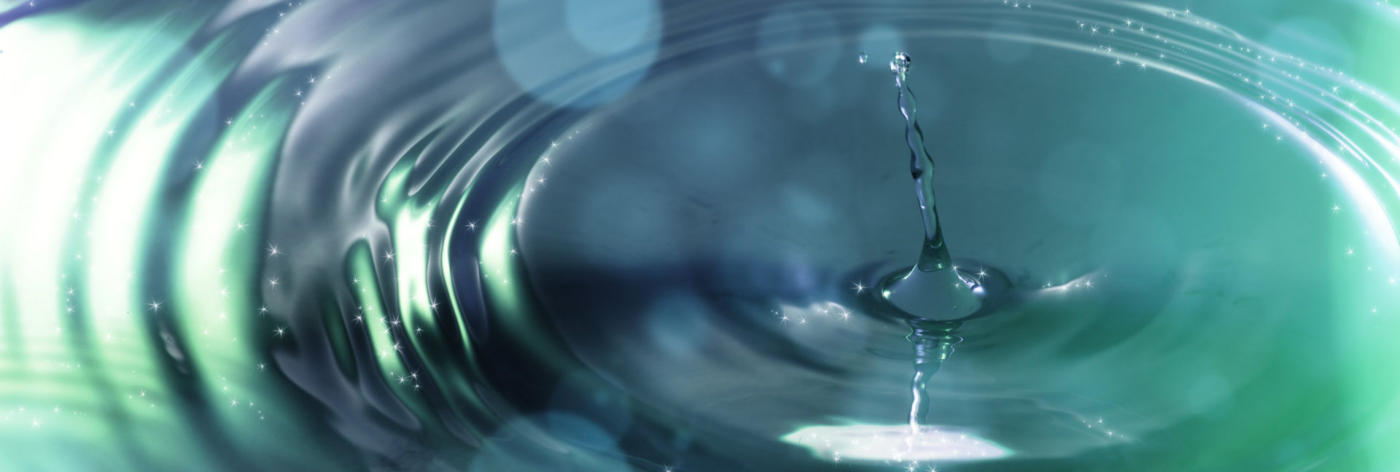



Proud dealer of



Quality Water
Copyright 2024 Quality Water Specialists Inc.
Website by North Country Website Design.
How to Find Us &
Contact Us
Hours:
Monday - Friday 7:30 AM-4:30 PM CST
Saturday - Sunday Closed
Address:
W3488 US 2-41
Powers, MI 49807
Phone:
906-497-5764 or 800-331-4H2O (4426)
Email: info@qualitywaterspecialists.com
Frequently Asked Questions
Air Purification Questions
Water Treatment Questions
Air Purification Questions
How do I know if I have an indoor air quality problem? We can test the air quality in your home using a laser particle counter. We will be able to determine if you will benefit from a Hellenbrand Air Purifier based upon those results. Below is a scale that explains different levels of air quality we may find: Air Quality Chart .5 um- Small Count Reading (Dependent on type of meter used) We use Airy Model P311 Excellent 0-7500 Very Good 7,500-15,000 Good 15,000-30,000 Fair 30,000-105,000 Poor 105,000-300,000 Very Poor >300,000 RESIDENTIAL AIR CLEANERS A Technical Summary What are the best air purifiers for allergy and asthma sufferers? HEPA (High-Efficiency Particulate Air) is a standard for air filtration set by the U.S. Government. While this is generally seen as an acceptable measurement for whether indoor air is good or bad, at Hellenbrand, we only saw it as a starting point. After all, HEPA filters are not 100% effective for capturing particles up to 0.3 microns – which the American Lung Association qualities as “ultra fine particles.” Our DFS (Disinfecting Filtration System) technology has four times the filter loading capacity than a typical HEPA rated filter, with an efficiency of capturing 99.99% of pollutants at 0.007 microns (40x smaller than a typical HEPA efficiency at 0.3 micron). The system is FDA listed as a Class II medical device. How much maintenance is required for the air filters? Periodic filter changes will be required, but far less often than a HEPA filter as Hellenbrand filters hold 4x the amount similarly sized HEPA. Quality Water Specialists will bring the filters to you and change the main DFS filter every 16-24 mos., carbon filter every 6-12 mos. What happens if the air filters are not changed? The machine will no longer be effectively treating the environment. What is a micron? Short for micrometer, a micron is one millionth of a meter and approximately 1/25,000th of an inch. Microns are used to measure airborne particle sizes. This is important because many harmful airborne particles are invisible to the naked eye, making them easily inhaled or distributed throughout your indoor environment. For example, dust mite allergens can be as small as 0.1 to 0.3 microns, which is considerably smaller than a single strand of human hair that typically measures 30 to 120 microns. How long should I run my air purifier? For best results, it is recommended to run your air purifier continuously. What are the different types of Air Purifiers? • HEPA - High Efficiency Particulate Air o 99.97% efficient at 0.3 microns o Low air flow restriction o Noisy o No microorganism destruction o Breeding ground for bacteria • UV - Ultraviolet Light o Commonly used in commercial applications with various monitors to ensure proper dosage outputs are being met o Not recommended for residential applications due to lack of monitoring capabilities o Insufficient air flow • Ozone - Disinfectant gas o Ozone gas is dispersed into the air o Very harmful in high concentrations o Is only a disinfectant • Ionizers - Electronic Charge o No air flow o Utilizes metal plates for electrostatic charge that require frequent cleaning o Only about 30-45% efficient o No filters • Hellenbrand System o DFS Germicidal Technology- Captures dust, mold, pollen, dust mite, dander and removes up to 100% of these captured contaminants o 360 degree air intake- patented o Six air change outs per hour o Better than 99.97% particle capture at 0.3 microns o Four times the particle reduction as a similar sized HEPA filter o FDA Certified and listed Class II medical device ▪ 98-100% of viruses ▪ 98-100% of bacteria ▪ 94-100% of mold and fungi o 100% of incoming air is treated in sealed filter chamber o Electronic control panel o Replace main DFS filter every 16-24 mos., carbon filter every 6-12 mos. o Model 20600-03 High chemical gas absorption Have more Questions?Water Treatment Questions
What is hard water? Hard water is water that is high in minerals like calcium, magnesium and carbonate. It can happen with both city and well water, and takes a huge toll on your home, clogging up your appliances, creating spotty dishes, leaving your skin dry and your clothes dull and scratchy. How does a softener work? A water softener consists of two tanks; the first tank is the resin tank, which holds resin beads covered in sodium particles. A water softener works by moving hard water over the resin. The calcium and magnesium replace the sodium particles by clinging to the resin beads, so the leftover soft water is able to continue on to your home’s faucets and appliances. The second tank is the brine tank. This is the tank to which you add salt. Eventually, the resin in the softener tank will collect so much calcium and magnesium that it is no longer able to soften water. The water softener will need to regenerate, meaning the resin will be rinsed with a salt solution from the brine tank. After this, your water softener will be ready to remove minerals from your hard water once again. Is city water considered soft? Most municipalities don’t soften water in a central location before providing it to your home. This unsoftened water can cause a buildup of minerals, also called “scale” and can harm the efficiency and lifetime of your water using appliances and fixtures. Even if your municipality is using surface water, reservoirs or lake water you may need a softener to help reduce the buildup of minerals in your home. Our specialists will be able to test and verify if you’ll need a softener to reduce or remove extra minerals from your water supply. How often should I have my water tested? Most government agencies recommend that private well water should be tested a minimum of once per year. Drinking water supplies obtained from shallow wells and surface water sources should be tested more frequently (i.e. seasonally), as they are more susceptible to contamination. It is important to test your drinking water at the tap and at the source. What kinds of contaminates can you test for? Our complimentary water analysis consists of testing for: • Hardness • Iron • Iron Bacteria • P.H. • Sulfur • TDS • Tannins • Color • Nitrate/Nitrite • Arsenic • Copper • Alkalinity Our expert may recommend additional testing above and beyond what is included, based upon their initial findings. Examples of these specialty tests could include any of the following partial list (not included with complimentary water testing, charges apply): • E. Coli • Coliform Bacteria • Fluoride • Chloride • Lead/Copper • Other metalsClick here to contact us online now!
What is Reverse Osmosis? A reverse osmosis system uses pressure to force water molecules through a semipermeable membrane. Water impurities are blocked by the membrane ensuring pure water flows from it. There are four stages in the enhanced filtration process: 1. Sediment Filter o This is a pre-filter stage that protects the other delicate parts of the RO system. It reduces sediment, dirt and silt in the water. 2. Carbon Filter o This is designed to reduce chlorine and other impurities that interfere with the performance of the RO membrane. The taste and odor of water is also improved at this stage. 3. Reverse Osmosis Membrane o At this stage, the impurities listed above are filtered out. 4. Polishing Filter o In the fourth stage, a final post filter polishes off the water by removing any remaining taste and odor from the water. What is UV or ultraviolet disinfection? UV filtration systems use germicidal ultraviolet light, or UV-C light, to disinfect water as it comes into your home—penetrating microorganisms and rendering them harmless by inhibiting their ability to reproduce. UV filtration systems destroy a minimum of 99.9% of micro contaminants including E. coli and cysts. Do you sell and rent water treatment equipment? Yes. You can purchase or rent many of our products. Please call us at (800) 331-4H2O (4426) for more information. If I rent or buy your softener do I have to use your brand of salt? No. You’re welcome to use any salt brand you choose. Will you deliver salt to me even if it’s not your brand of softener? Absolutely. Please let us know if you would like to be added to our delivery route! What do I watch out for when it comes to suspicious and possibly counterfeit filters from other retailers? • Firstly, water conditioning equipment purchased from Quality Water Specialists is always NSF certified. • If for some reason you purchased equipment elsewhere, here are some things to look out for: o Use extreme caution if your equipment was not purchased from a WQA Member company. o Price: If the price is dramatically lower than other filters you’ve seen advertised, it may be too good to be true. o Weight: If the filter seems to be lighter than you would expect, it may not have the correct interior components. o Small certification labels: Some companies try to fly under the radar by making seals smaller to escape scrutiny. o Extra-glossy packaging: The company may be trying to make the product look of even higher value. o For more info: https://www.investigatetv.com/fake- filters/Click here to contact us online now!
What kind of salt should I put in my softener? We can make a salt recommendation based on the type of softener you own and the results of our complimentary water test. How much sodium will a water softener add to my water? Well, it all depends on how much “hardness” was in the water to begin with. The softener “exchanges” about an equal amount of sodium for the initial hardness. The harder the water, the more sodium you'll have added to the final product. • GPG hardness x 1.89 = mg. of sodium in an 8 oz glass of water, more or less. • In other words, if your water test tells you that you have 18 grains per gallon hardness, installing a water softener will add about 34 milligrams of sodium to each 8 oz. glass of water you drink. • To put this in perspective, a tablespoon of catsup has 204 mg. of sodium and a slice of whole wheat bread has 211. • Read more: Sources of Dietary Sodium Is softened water safe for my septic system? Several studies have been conducted to determine the exact nature of water softener recharge waste effluents and their effects on private sewage disposal systems. These studies evaluated three major areas, all dealing with the effect of effluents developed during the recharge of household water softeners. The studies found that a properly sized and operated Demand Initiated Regeneration (DIR) water softener on an efficient salt setting of 3,500 grains per pound of salt or better will not have harmful effects on a septic tank, including the Advanced Treatment Unit (ATU) type. For more information check out these studies: • Water Softener Effects on Septic System Performance • EPA Article • WQRC Articles 1&2 Will I really save money on appliances, electricity & detergents with soft water? • Washing Machines o With soft water, the same or better stain removal and whiter clothes can be achieved by using 50% less laundry detergent. Energy can also be saved by washing in 60 degree F cold water instead of 100 degree F hot water. • Dishwashers o Dishwasher detergent can be reduced by more than 50% after softening and still get the same cleaning results. For more information: • Softened Water Benefits StudyArsenic
Arsenic is a naturally occurring element found in soil and bedrock throughout Michigan & Wisconsin. Under certain conditions, arsenic can be released into groundwater and enter water wells. Long-term exposure to arsenic in drinking water is known to increase risks of skin, bladder, lung, liver, colon, and kidney cancer. Other health effects may include blood vessel damage, high blood pressure, nerve damage, anemia, stomach upsets, diabetes, and skin changes. » Arsenic in Drinking Water Brochure [PDF] For more information on Arsenic found in Wisconsin groundwater: https://www.wisconsinwatch.org/2016/01/despite- state-efforts-arsenic-continues-to-poison-many- private-wells-in-wisconsin For more information on Arsenic found in Michigan groundwater: https://www.michigan.gov/documents/deq/deq- wd-gws-ciu-statewide-as_270812_7.pdf How to find out if your water is safe to drink You cannot smell, taste or see arsenic in your private well water. The only way to know if your drinking water contains arsenic is to have a water sample from your private well tested. Quality Water Specialists will test this as part of our complimentary water analysis. FREE WATER ANALYSISCould my tap water contain carcinogens?
Read the article: Cumulative risk analysis of carcinogenic contaminants in United States drinking water.Can I pay online?
No.What credit cards do you accept?
Visa, Master Card, Discover & American Express.Do you accept ACH payments?
Please contact our office to discuss availability of ACH payment processing. Have more Questions?



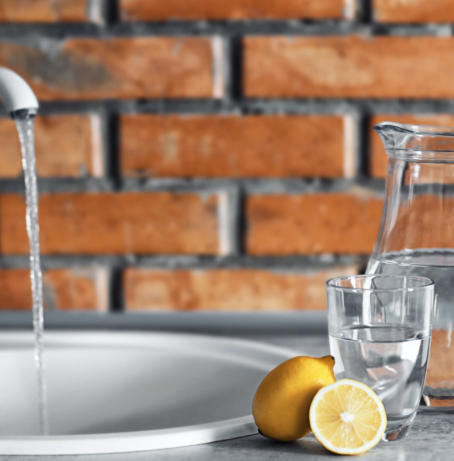
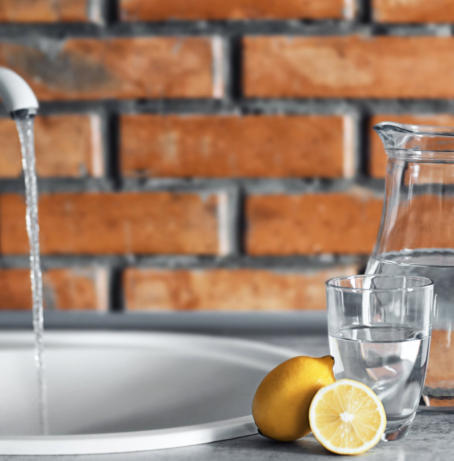


Specialists, Inc.

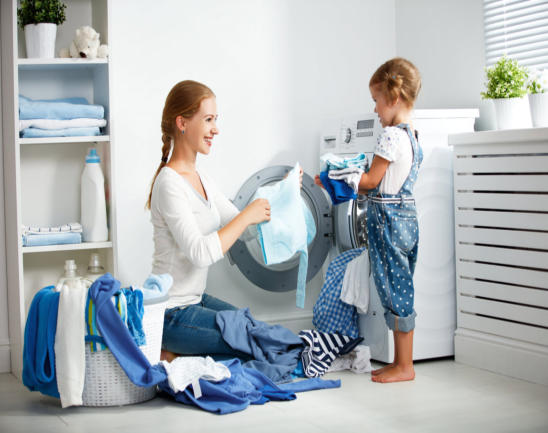

Quality Water Specialists, Inc.
1-800-331-4H2O or 1-906-497-5764

2024 Quality Water Specialists Inc.
Website by North Country Website Design.
How to Find Us &
Contact Us
Hours:
Monday - Friday 7:30 AM-4:30 PM CST
Saturday - Sunday Closed
Address:
W3488 US 2-41
Powers, MI 49807
Phone:
906-497-5764 or 800-331-4H2O (4426)
Email: info@qualitywaterspecialists.com
Frequently Asked Questions
Air Purification Questions
Water Treatment Questions
Air Purification Questions
How do I know if I have an indoor air quality problem? We can test the air quality in your home using a laser particle counter. We will be able to determine if you will benefit from a Hellenbrand Air Purifier based upon those results. Below is a scale that explains different levels of air quality we may find: Air Quality Chart .5 um- Small Count Reading (Dependent on type of meter used) We use Airy Model P311 Excellent 0-7500 Very Good 7,500-15,000 Good 15,000-30,000 Fair 30,000-105,000 Poor 105,000-300,000 Very Poor >300,000 RESIDENTIAL AIR CLEANERS A Technical Summary What are the best air purifiers for allergy and asthma sufferers? HEPA (High-Efficiency Particulate Air) is a standard for air filtration set by the U.S. Government. While this is generally seen as an acceptable measurement for whether indoor air is good or bad, at Hellenbrand, we only saw it as a starting point. After all, HEPA filters are not 100% effective for capturing particles up to 0.3 microns – which the American Lung Association qualities as “ultra fine particles.” Our DFS (Disinfecting Filtration System) technology has four times the filter loading capacity than a typical HEPA rated filter, with an efficiency of capturing 99.99% of pollutants at 0.007 microns (40x smaller than a typical HEPA efficiency at 0.3 micron). The system is FDA listed as a Class II medical device. How much maintenance is required for the air filters? Periodic filter changes will be required, but far less often than a HEPA filter as Hellenbrand filters hold 4x the amount similarly sized HEPA. Quality Water Specialists will bring the filters to you and change the main DFS filter every 16-24 mos., carbon filter every 6-12 mos. What happens if the air filters are not changed? The machine will no longer be effectively treating the environment. What is a micron? Short for micrometer, a micron is one millionth of a meter and approximately 1/25,000th of an inch. Microns are used to measure airborne particle sizes. This is important because many harmful airborne particles are invisible to the naked eye, making them easily inhaled or distributed throughout your indoor environment. For example, dust mite allergens can be as small as 0.1 to 0.3 microns, which is considerably smaller than a single strand of human hair that typically measures 30 to 120 microns. How long should I run my air purifier? For best results, it is recommended to run your air purifier continuously. What are the different types of Air Purifiers? • HEPA - High Efficiency Particulate Air o 99.97% efficient at 0.3 microns o Low air flow restriction o Noisy o No microorganism destruction o Breeding ground for bacteria • UV - Ultraviolet Light o Commonly used in commercial applications with various monitors to ensure proper dosage outputs are being met o Not recommended for residential applications due to lack of monitoring capabilities o Insufficient air flow • Ozone - Disinfectant gas o Ozone gas is dispersed into the air o Very harmful in high concentrations o Is only a disinfectant • Ionizers - Electronic Charge o No air flow o Utilizes metal plates for electrostatic charge that require frequent cleaning o Only about 30-45% efficient o No filters • Hellenbrand System o DFS Germicidal Technology- Captures dust, mold, pollen, dust mite, dander and removes up to 100% of these captured contaminants o 360 degree air intake- patented o Six air change outs per hour o Better than 99.97% particle capture at 0.3 microns o Four times the particle reduction as a similar sized HEPA filter o FDA Certified and listed Class II medical device ▪ 98-100% of viruses ▪ 98-100% of bacteria ▪ 94-100% of mold and fungi o 100% of incoming air is treated in sealed filter chamber o Electronic control panel o Replace main DFS filter every 16-24 mos., carbon filter every 6-12 mos. o Model 20600-03 High chemical gas absorption Have more Questions?Water Treatment Questions
What is hard water? Hard water is water that is high in minerals like calcium, magnesium and carbonate. It can happen with both city and well water, and takes a huge toll on your home, clogging up your appliances, creating spotty dishes, leaving your skin dry and your clothes dull and scratchy. How does a softener work? A water softener consists of two tanks; the first tank is the resin tank, which holds resin beads covered in sodium particles. A water softener works by moving hard water over the resin. The calcium and magnesium replace the sodium particles by clinging to the resin beads, so the leftover soft water is able to continue on to your home’s faucets and appliances. The second tank is the brine tank. This is the tank to which you add salt. Eventually, the resin in the softener tank will collect so much calcium and magnesium that it is no longer able to soften water. The water softener will need to regenerate, meaning the resin will be rinsed with a salt solution from the brine tank. After this, your water softener will be ready to remove minerals from your hard water once again. Is city water considered soft? Most municipalities don’t soften water in a central location before providing it to your home. This unsoftened water can cause a buildup of minerals, also called “scale” and can harm the efficiency and lifetime of your water using appliances and fixtures. Even if your municipality is using surface water, reservoirs or lake water you may need a softener to help reduce the buildup of minerals in your home. Our specialists will be able to test and verify if you’ll need a softener to reduce or remove extra minerals from your water supply. How often should I have my water tested? Most government agencies recommend that private well water should be tested a minimum of once per year. Drinking water supplies obtained from shallow wells and surface water sources should be tested more frequently (i.e. seasonally), as they are more susceptible to contamination. It is important to test your drinking water at the tap and at the source. What kinds of contaminates can you test for? Our complimentary water analysis consists of testing for: • Hardness • Iron • Iron Bacteria • P.H. • Sulfur • TDS • Tannins • Color • Nitrate/Nitrite • Arsenic • Copper • Alkalinity Our expert may recommend additional testing above and beyond what is included, based upon their initial findings. Examples of these specialty tests could include any of the following partial list (not included with complimentary water testing, charges apply): • E. Coli • Coliform Bacteria • Fluoride • Chloride • Lead/Copper • Other metalsClick here to contact us online now!
What is Reverse Osmosis? A reverse osmosis system uses pressure to force water molecules through a semipermeable membrane. Water impurities are blocked by the membrane ensuring pure water flows from it. There are four stages in the enhanced filtration process: 1. Sediment Filter o This is a pre-filter stage that protects the other delicate parts of the RO system. It reduces sediment, dirt and silt in the water. 2. Carbon Filter o This is designed to reduce chlorine and other impurities that interfere with the performance of the RO membrane. The taste and odor of water is also improved at this stage. 3. Reverse Osmosis Membrane o At this stage, the impurities listed above are filtered out. 4. Polishing Filter o In the fourth stage, a final post filter polishes off the water by removing any remaining taste and odor from the water. What is UV or ultraviolet disinfection? UV filtration systems use germicidal ultraviolet light, or UV-C light, to disinfect water as it comes into your home—penetrating microorganisms and rendering them harmless by inhibiting their ability to reproduce. UV filtration systems destroy a minimum of 99.9% of micro contaminants including E. coli and cysts. Do you sell and rent water treatment equipment? Yes. You can purchase or rent many of our products. Please call us at (800) 331-4H2O (4426) for more information. If I rent or buy your softener do I have to use your brand of salt? No. You’re welcome to use any salt brand you choose. Will you deliver salt to me even if it’s not your brand of softener? Absolutely. Please let us know if you would like to be added to our delivery route! What do I watch out for when it comes to suspicious and possibly counterfeit filters from other retailers? • Firstly, water conditioning equipment purchased from Quality Water Specialists is always NSF certified. • If for some reason you purchased equipment elsewhere, here are some things to look out for: o Use extreme caution if your equipment was not purchased from a WQA Member company. o Price: If the price is dramatically lower than other filters you’ve seen advertised, it may be too good to be true. o Weight: If the filter seems to be lighter than you would expect, it may not have the correct interior components. o Small certification labels: Some companies try to fly under the radar by making seals smaller to escape scrutiny. o Extra-glossy packaging: The company may be trying to make the product look of even higher value. o For more info: https://www.investigatetv.com/fake-filters/Click here to contact us online now!
What kind of salt should I put in my softener? We can make a salt recommendation based on the type of softener you own and the results of our complimentary water test. How much sodium will a water softener add to my water? Well, it all depends on how much “hardness” was in the water to begin with. The softener “exchanges” about an equal amount of sodium for the initial hardness. The harder the water, the more sodium you'll have added to the final product. • GPG hardness x 1.89 = mg. of sodium in an 8 oz glass of water, more or less. • In other words, if your water test tells you that you have 18 grains per gallon hardness, installing a water softener will add about 34 milligrams of sodium to each 8 oz. glass of water you drink. • To put this in perspective, a tablespoon of catsup has 204 mg. of sodium and a slice of whole wheat bread has 211. • Read more: Sources of Dietary Sodium Is softened water safe for my septic system? Several studies have been conducted to determine the exact nature of water softener recharge waste effluents and their effects on private sewage disposal systems. These studies evaluated three major areas, all dealing with the effect of effluents developed during the recharge of household water softeners. The studies found that a properly sized and operated Demand Initiated Regeneration (DIR) water softener on an efficient salt setting of 3,500 grains per pound of salt or better will not have harmful effects on a septic tank, including the Advanced Treatment Unit (ATU) type. For more information check out these studies: • Water Softener Effects on Septic System Performance • EPA Article • WQRC Articles 1&2 Will I really save money on appliances, electricity & detergents with soft water? • Washing Machines o With soft water, the same or better stain removal and whiter clothes can be achieved by using 50% less laundry detergent. Energy can also be saved by washing in 60 degree F cold water instead of 100 degree F hot water. • Dishwashers o Dishwasher detergent can be reduced by more than 50% after softening and still get the same cleaning results. For more information: • Softened Water Benefits StudyArsenic
Arsenic is a naturally occurring element found in soil and bedrock throughout Michigan & Wisconsin. Under certain conditions, arsenic can be released into groundwater and enter water wells. Long-term exposure to arsenic in drinking water is known to increase risks of skin, bladder, lung, liver, colon, and kidney cancer. Other health effects may include blood vessel damage, high blood pressure, nerve damage, anemia, stomach upsets, diabetes, and skin changes. » Arsenic in Drinking Water Brochure [PDF] For more information on Arsenic found in Wisconsin groundwater: https://www.wisconsinwatch.org/2016/01/despite-state-efforts-arsenic-continues-to-poison-many-private-wells-in-wisconsin For more information on Arsenic found in Michigan groundwater: https://www.michigan.gov/documents/deq/deq-wd-gws-ciu-statewide-as_270812_7.pdf How to find out if your water is safe to drink You cannot smell, taste or see arsenic in your private well water. The only way to know if your drinking water contains arsenic is to have a water sample from your private well tested. Quality Water Specialists will test this as part of our complimentary water analysis. FREE WATER ANALYSISCould my tap water contain carcinogens?
Read the article: Cumulative risk analysis of carcinogenic contaminants in United States drinking water.Can I pay online?
No.What credit cards do you accept?
Visa, Master Card, Discover & American Express.Do you accept ACH payments?
Please contact our office to discuss availability of ACH payment processing. Have more Questions?

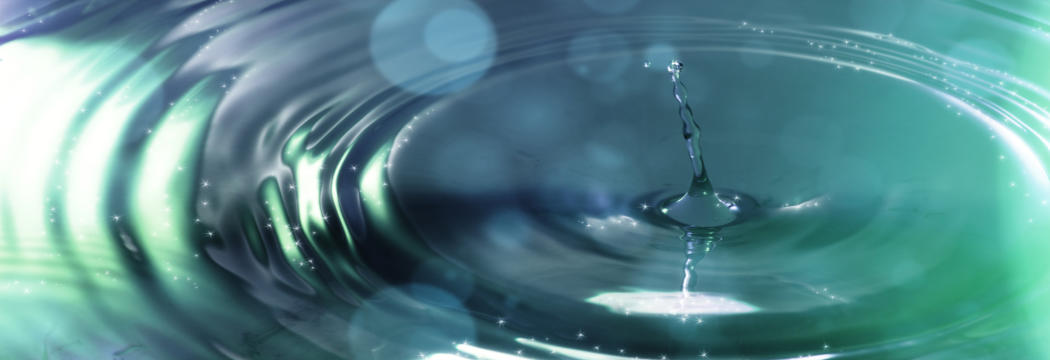



Proud dealer of























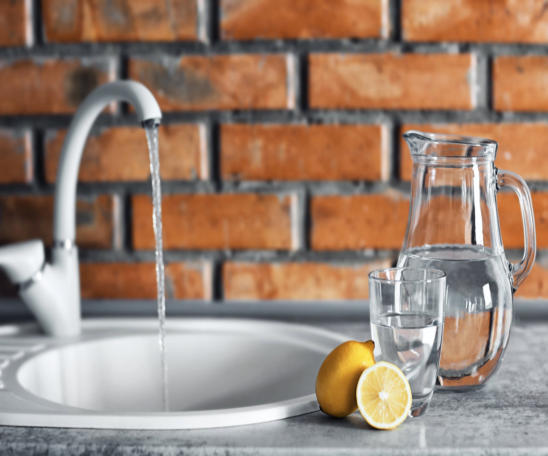
![Close [x]](index_htm_files/close.png)



